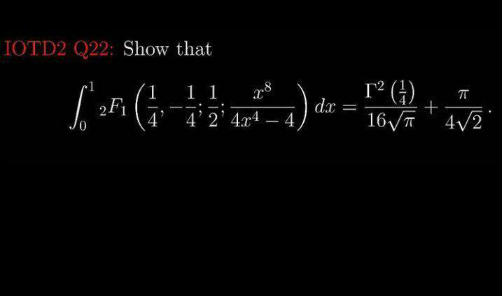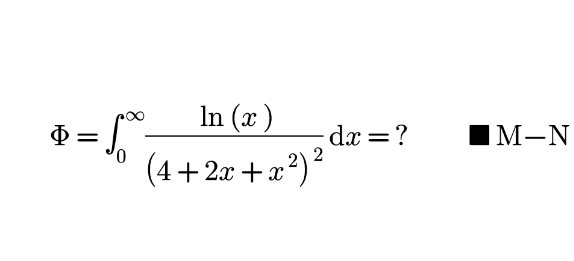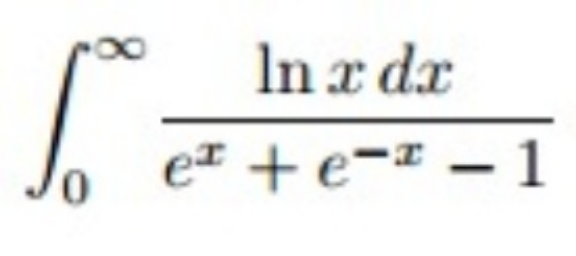
IntegrationQuestion and Answers: Page 51
Question Number 169049 Answers: 1 Comments: 0
$$\int{x}^{\mathrm{2}} {e}^{\frac{{x}^{\mathrm{2}} }{\mathrm{2}}} \\ $$$$ \\ $$$${Mastermind} \\ $$
Question Number 169048 Answers: 0 Comments: 0
$${find}\:\int_{\mathrm{0}} ^{\infty} \:\:\frac{{lnx}}{{x}^{\mathrm{2}} −{x}+\mathrm{2}}{dx} \\ $$
Question Number 169042 Answers: 0 Comments: 0

Question Number 169000 Answers: 1 Comments: 0

Question Number 168978 Answers: 1 Comments: 0
Question Number 168898 Answers: 1 Comments: 0

Question Number 168894 Answers: 1 Comments: 1

Question Number 168874 Answers: 0 Comments: 0

Question Number 168873 Answers: 0 Comments: 0

Question Number 168872 Answers: 0 Comments: 2
Question Number 168860 Answers: 0 Comments: 0

Question Number 168857 Answers: 3 Comments: 0

Question Number 168852 Answers: 0 Comments: 3

Question Number 168828 Answers: 0 Comments: 1
Question Number 168812 Answers: 0 Comments: 0
$$\int_{\mathrm{0}} ^{\pi} \left(\mathrm{sin}\:{x}\right)^{\mathrm{cos}\:{x}} {dx} \\ $$
Question Number 168772 Answers: 1 Comments: 1

Question Number 168771 Answers: 0 Comments: 0

Question Number 168762 Answers: 0 Comments: 2

Question Number 168745 Answers: 1 Comments: 1
$$\int\frac{\mathrm{1}}{{x}+\sqrt{{x}−\mathrm{1}}}\:{dx}\:=\:?? \\ $$
Question Number 168743 Answers: 1 Comments: 1
Question Number 168732 Answers: 2 Comments: 0

Question Number 168707 Answers: 1 Comments: 1

Question Number 168677 Answers: 2 Comments: 1

Question Number 168662 Answers: 0 Comments: 0
$$\int{sin}^{\mathrm{3}} \left({x}\right){cos}^{\mathrm{4}} \left(\mathrm{5}{x}\right){dx}=? \\ $$
Question Number 168649 Answers: 0 Comments: 3
Question Number 168652 Answers: 0 Comments: 0

